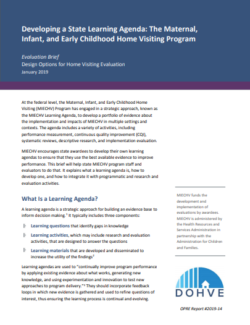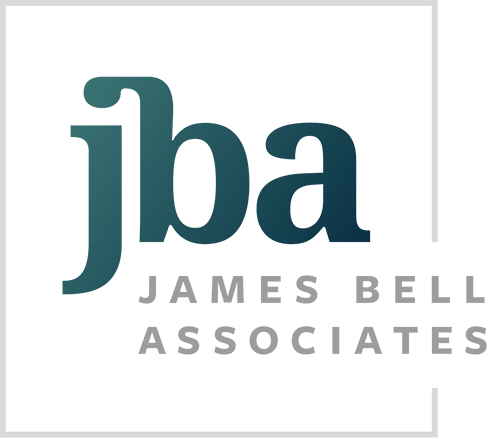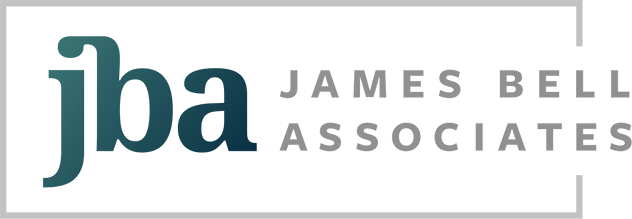Developing a State Learning Agenda: The Maternal, Infant, and Early Childhood Home Visiting Program
- Authors:
- Lance Till
- Susan Zaid
A learning agenda is a strategic approach for building an evidence base to inform decision making. At the federal level, the Maternal, Infant, and Early Childhood Home Visiting (MIECHV) Program has engaged in a learning agenda to develop a portfolio of evidence about the implementation and impacts of MIECHV in multiple settings and contexts.
The agenda includes a variety of activities, including performance measurement, continuous quality improvement, systematic reviews, descriptive research, and implementation evaluation. MIECHV encourages state awardees to develop their own learning agendas to ensure that they use the best available evidence to improve performance.
 The primary benefits of developing a learning agenda are the identification of knowledge gaps and the use of evidence to drive decision making. Other benefits include—
The primary benefits of developing a learning agenda are the identification of knowledge gaps and the use of evidence to drive decision making. Other benefits include—
- Building a continuum of evidence
- Driving efficient use of resources
- Reinforcing strategy and policy
- Supporting organizational change and learning
- Fostering adaptive management
Steps to developing a learning agenda include—
- Engaging stakeholders
- Developing or refining a theory of change
- Identifying learning priorities
- Generating learning questions
- Crosswalking learning questions with potential learning activities
- Aligning data collection
- Sequencing learning activities
- Developing and disseminating learning materials
This brief will help state MIECHV program staff and evaluators develop their own learning agendas to ensure that they use the best available evidence to improve performance. It explains what a learning agenda is, how to develop one, and how to integrate it with programmatic and research and evaluation activities.

